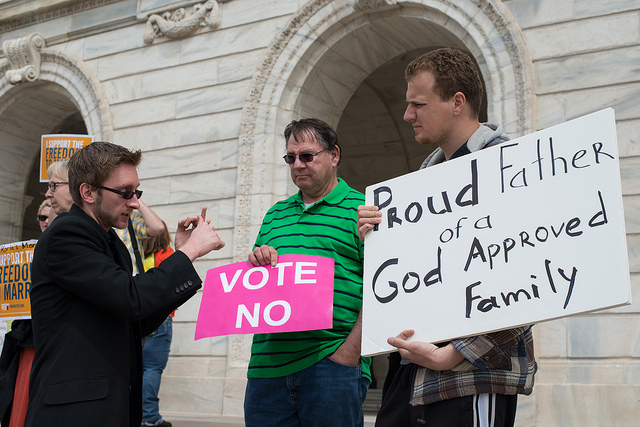-
Tips for becoming a good boxer - November 6, 2020
-
7 expert tips for making your hens night a memorable one - November 6, 2020
-
5 reasons to host your Christmas party on a cruise boat - November 6, 2020
-
What to do when you’re charged with a crime - November 6, 2020
-
Should you get one or multiple dogs? Here’s all you need to know - November 3, 2020
-
A Guide: How to Build Your Very Own Magic Mirror - February 14, 2019
-
Our Top Inspirational Baseball Stars - November 24, 2018
-
Five Tech Tools That Will Help You Turn Your Blog into a Business - November 24, 2018
-
How to Indulge on Vacation without Expanding Your Waist - November 9, 2018
-
5 Strategies for Businesses to Appeal to Today’s Increasingly Mobile-Crazed Customers - November 9, 2018
Homophobic Attitudes Linked To Psychological Issues
In the new study, the researchers asked 551 Italian university students, ranging in age from 18 to 30, to fill out questionnaires on their levels of homophobia as well as their psychopathology, including levels of depression, anxiety and psychoticism.
Advertisement
A new research explored the possibility of homophobia as a disease and concluded that homophobic individuals are more likely to be vulnerable in expressing aggression, physical hostility and anger.
According to Live Science, the subjects were also asked to rate on a scale from one to five how strongly they agreed or disagreed with certain homophobic and non-homophobic statements.
Researchers found the better the mental health of the person, the less likely he or she was to convey homophobic views.
However, people with depression or repression had lower level of homophobia.
Editor in Chief of NewNowNext. Some of those statements included: Gay people make me nervous; I think homosexual people should not work with children; I tease and makes jokes about gay people; It does not matter to me whether my friends are gay or straight.
The researchers added that personality alone does not lead to cultivation of homophobia.
In the second faze of the study, the students had to answer various questions that revealed their attachment style, or the way that they approach a relationship.
Overall, Jannini and his team of researchers discovered a strong link between “fearful-avoidant” attachment styles – where individuals are uncomfortable with close relationships – and homophobia.
The results showed that psychoticism represented an important risk factor for homophobia, ‘demonstrating that pathologic personality traits are involved in homophobic attitudes’.
Lastly, the volunteers were classified as having either mature defense mechanisms or immature ones.
According to the Telegraph, Jannini found that those with homophobic beliefs also have poor coping mechanisms, and their hostile homophobic attitude towards homosexuality may be because they feel confused about their own gender identity.
Also, they found that those who had immature defense mechanisms were more homophobic that emotionally development counterparts. People seem to feel comfortable getting close to others and vice versa in healthy or secured attachments, while insecurely attached people were found to avoid intimacy, being clingy, or desire closeness while being uncomfortable trusting others. Basically, Jannini believes that to some extent homophobia is actually a “culture-induced disease”, where psychological factors may be related to socio-cultural aspects like spirituality and traditional values.
Jannini plans to extend his research further by narrowing down on homophobic males.
Advertisement
Follow Stephanie Pappas on Twitter and Google+.





























